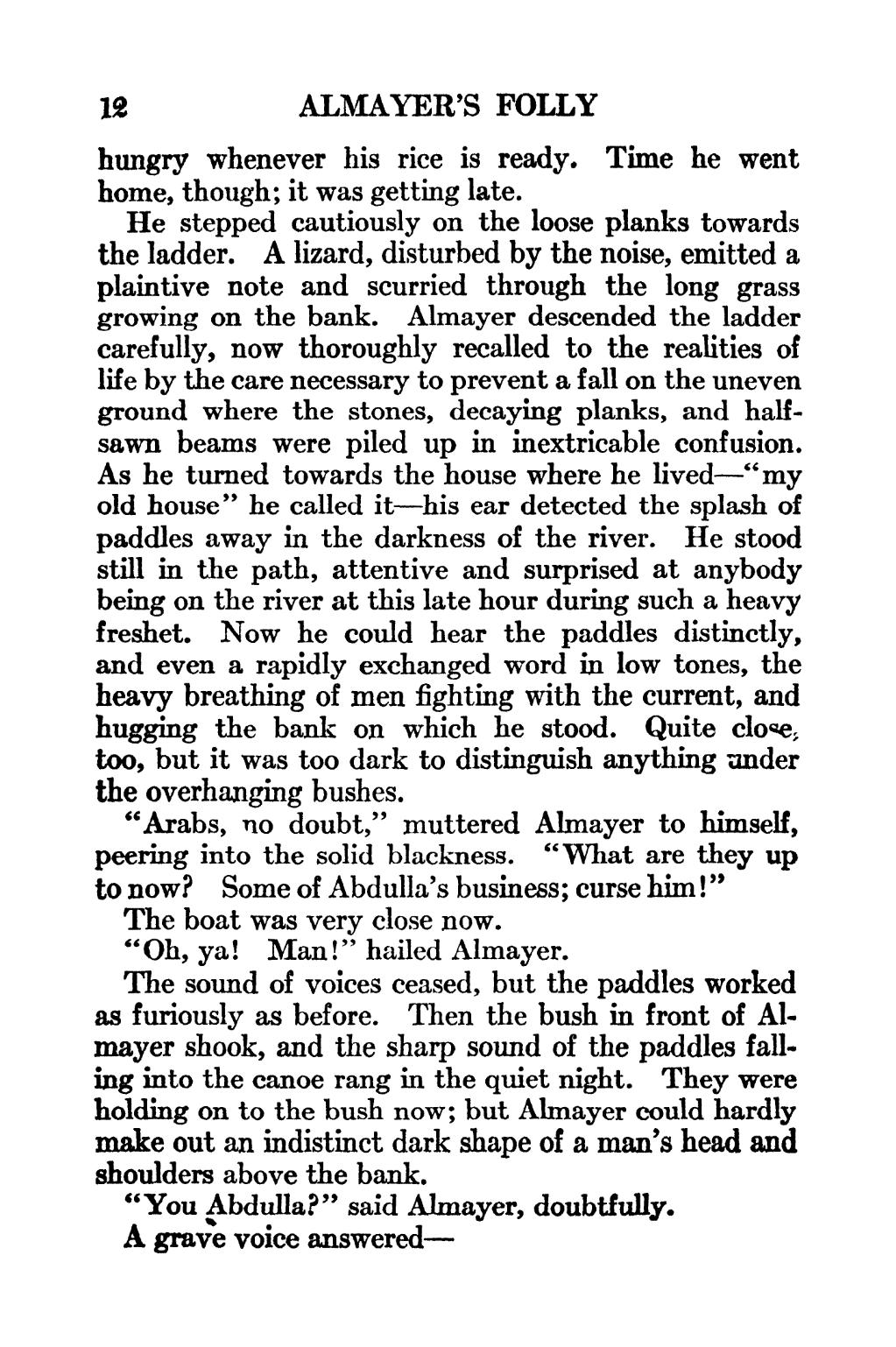hungry whenever his rice is ready. Time he went home, though; it was getting late.
He stepped cautiously on the loose planks towards the ladder. A lizard, disturbed by the noise, emitted a plaintive note and scurried through the long grass growing on the bank. Almayer descended the ladder carefully, now thoroughly recalled to the realities of life by the care necessary to prevent a fall on the uneven ground where the stones, decaying planks, and half-sawn beams were piled up in inextricable confusion. As he turned towards the house where he lived—"my old house" he called it—his ear detected the splash of paddles away in the darkness of the river. He stood still in the path, attentive and surprised at anybody being on the river at this late hour during such a heavy freshet. Now he could hear the paddles distinctly, and even a rapidly exchanged word in low tones, the heavy breathing of men fighting with the current, and hugging the bank on which he stood. Quite close, too, but it was too dark to distinguish anything under the overhanging bushes.
"Arabs, no doubt," muttered Almayer to himself, peering into the solid blackness. "What are they up to now? Some of Abdulla's business; curse him!"
The boat was very close now.
"Oh, ya! Man!" hailed Almayer.
The sound of voices ceased, but the paddles worked as furiously as before. Then the bush in front of Almayer shook, and the sharp sound of the paddles falling into the canoe rang in the quiet night. They were holding on to the bush now; but Almayer could hardly make out an indistinct dark shape of a man's head and shoulders above the bank.
"You Abdulla?" said Almayer, doubtfully.
A grave voice answered—
